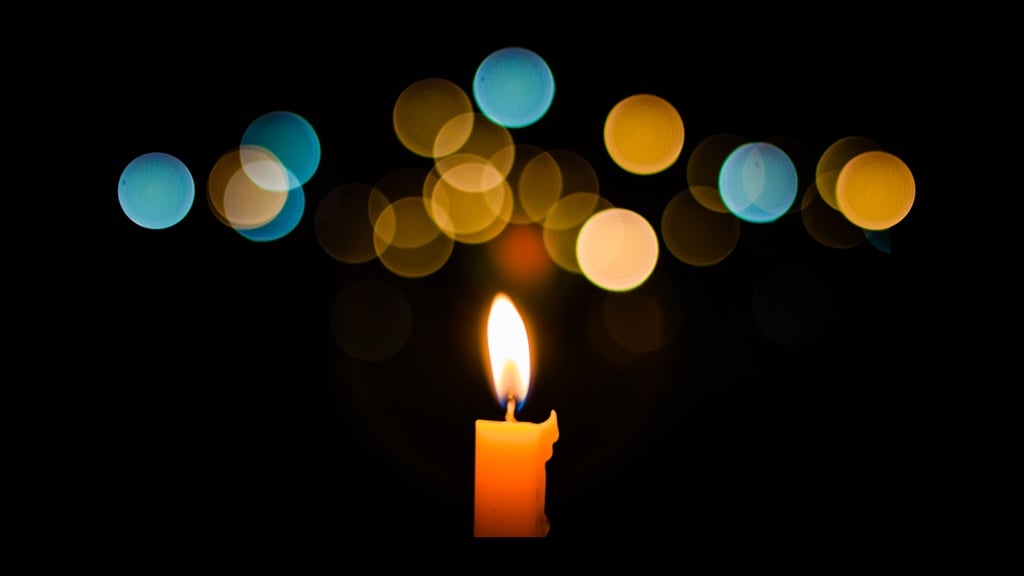
There are many examples in history, where the loss of a human life or lives was followed by an outpouring of grief and public mourning. But what do we do if we are prevented from doing so? asks Alet Law.
Sister Regina Buyiswa Gxekwa, 58, was a community nurse for over 30 years. For the last 12 years, "uMaMfene", "Mother" or "uNomri", as she was affectionately known, would leave her home every morning to take an hour-long taxi drive to the Hackney Clinic in Whittlesea. The community's health was more important to her than this "little" inconvenience.
Sergeant Chriszelda Coetzee, 38, from Cape Town, was a dedicated member of the police force for almost 20 years.
Dr Irshad Karrim, 44, served as a doctor for over 20 years in Pietermaritzburg and Durban.
Peter Wilgenbus, 63, from Pretoria was actively involved in the South African Parkrun community.
Rev Charlin Lesch Legolie, 41, was a fourth generation pastor of the African Methodist Episcopal Church from Kraaifontein, Cape Town.
On 5 March 2020, South Africa recorded its first Covid-19 case; a few days later, its first death from the virus and the above list was borne: the burgeoning list of South Africans who have died from Covid-19.
Shortly after the pandemic reached South Africa, News24 issued a standing invitation to readers, who wanted to honour family members, friends or other beloveds who died of causes related to the virus, to send us their names and pictures along with a short tribute or obituary. The We Remember memorial wall has since become a silent mourning site, where South Africans pay their final respects to the victims of Covid-19.
Who could ever forget the thousands of flowers laid down in front of London's Kensington Palace after the death of Diana, Princess of Wales in 1997? Or the photos and personal items placed at the 9/11 site, where 3 000 perished in the attack on the World Trade Centre in 2001? On home soil, and unfortunately too often, we see vigils held for murder victims, like in the case of Uyinene Mrwetwana, the UCT student who was raped and murdered in a Post Office.
Collective trauma
It is human nature to grieve when a death occurs and to want to express that grief in a way which acknowledges another soul that meant something to someone has left this earth. That's why we hold funerals, memorials and wakes. We gather, as families and friends, to comfort each other and remember the dead. In South Africa, we hold "after tears" ceremonies and gather in large numbers to celebrate the bereaved with food and drink.
But, for the past year, none of that has been possible. We've been confined to our homes and forbidden by law to gather in groups. In many cases, people weren't even allowed to be there for their loved one's final moments due to hospital regulations.
So we face a situation in which we are not only suffering deeply personal losses, but facing a massive collective trauma, with no place and no time to grieve.
As philosopher Magdalena Zolkos, from Goethe University in Frankfurt, Germany, puts it: with "collective inability to process in the present", the dead "might return to haunt, but belatedly".
So what do we do?
We all carry a certain illusion of control, but if this pandemic has taught us anything, it's that we never really know what's going to happen next. No matter how well we plan, things can change in the blink of an eye.
What we do have is the capacity to cope. We are far more resilient than we think, especially in moments of loss and trauma.
As Austrian psychiatrist Viktor Frankl said: "When we are no longer able to change a situation, we are challenged to change ourselves."
And, as any person who's suffered a great personal loss will tell you, you don't move on from grief, you move forward with it.
Going forward, the commemoration of our collective trauma will be crucial if we are to recover as a nation.
One hopes the government will have the insight to plan more moments of recognition for the losses we've all suffered during the past year.
In the meantime, News24's We Remember memorial wall acts as a channel for grief and meaning-making that offers to help us process our trauma. We encourage every person with the courage to do so, to participate.
- Alet Law is News24's engagement editor.
Disclaimer: News24 encourages freedom of speech and the expression of diverse views. The views of columnists published on News24 are therefore their own and do not necessarily represent the views of News24.
